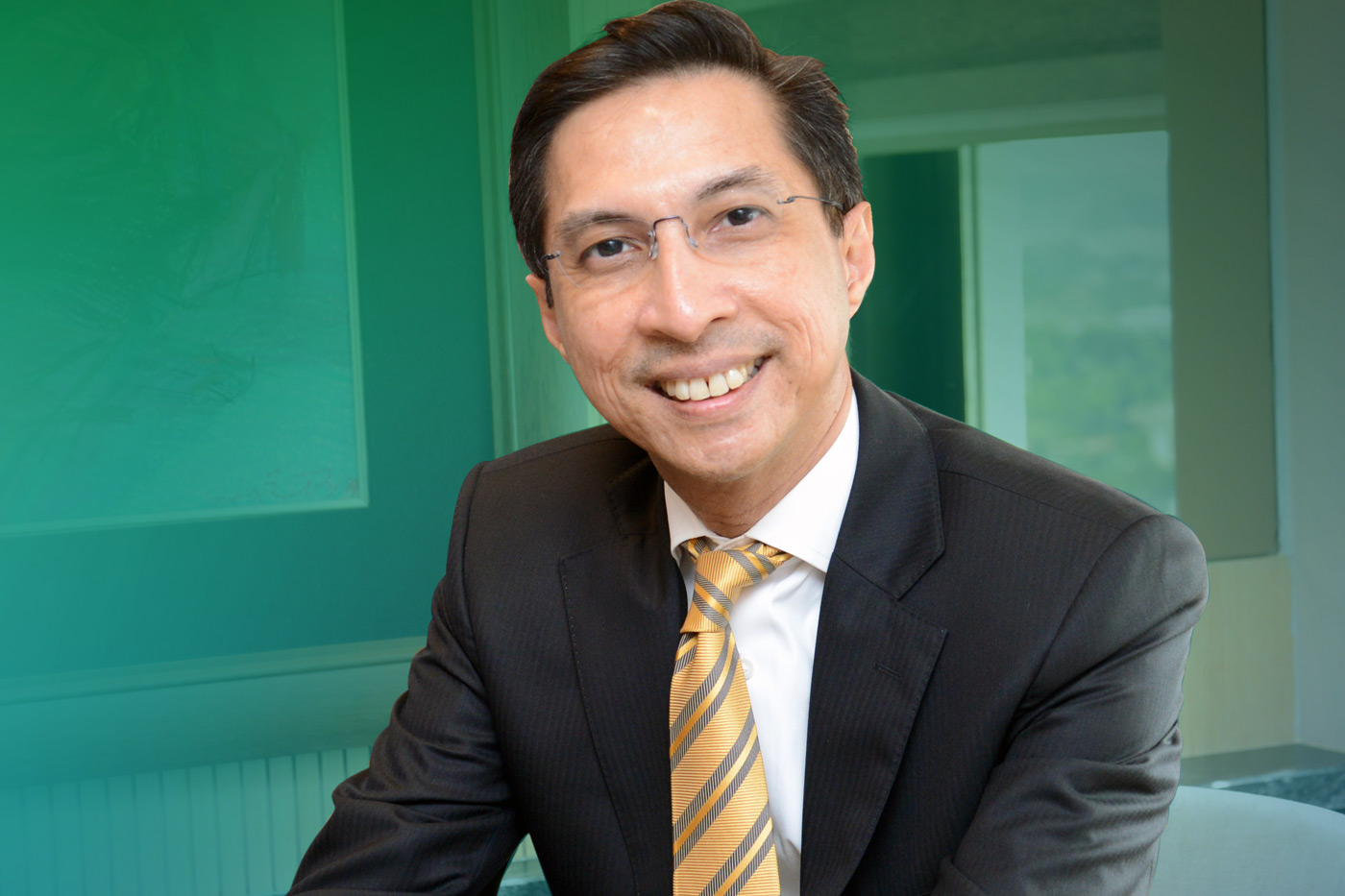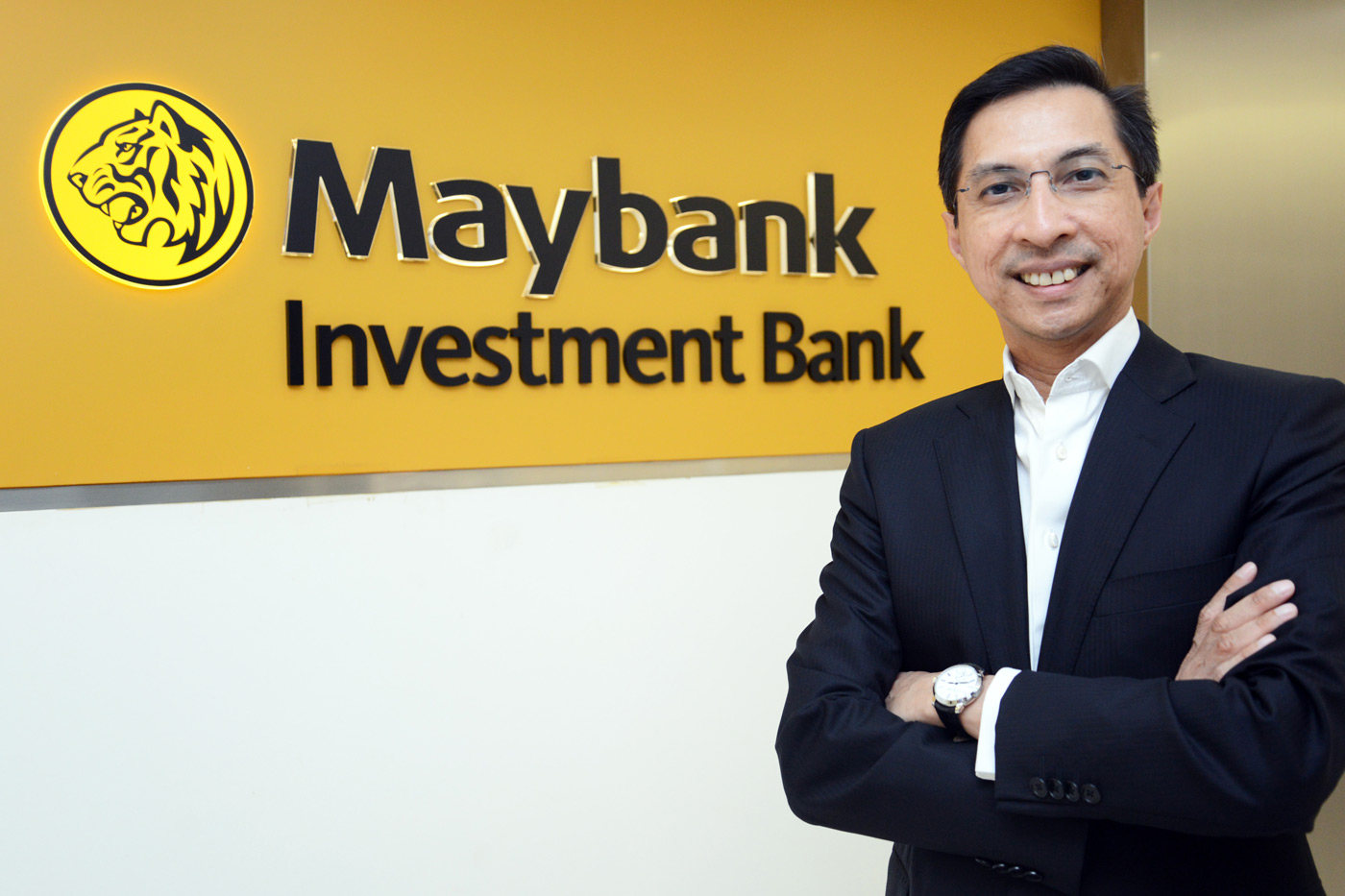Future-Proofing the Next Normal
Banking is irrevocably changed and all the stronger.

Reporting by the Banking Insight Editorial Team
In an exclusive interview, Fad’l Mohamed, CB, CEO of Maybank Investment Bank Berhad reveals his thoughts on future-proofing of finance, the intersection of digital and human, and ushering the new year with renewed vigour.
Q: Although Covid-19 isn’t the first crisis we’ve encountered, for many, it is certainly the most severe. How has the pandemic impacted Maybank Investment Bank and how has the organisation adapted since?
Sometimes it takes a century to change a day, and a day to change a century. The pandemic was certainly momentous on many levels. It changed the way we work and live. Our teams had to adapt quickly during the peak of lockdown to ensure business continuity, to ensure that we could continue serving clients while keeping one another and the community safe. We continue to invest in our people and workplace as we adapt to the ‘next normal’. Hybrid working is here to stay. Cognisant of the impact of the pandemic on physical and mental health, Maybank has launched several well-being initiatives and made available resources to support and educate employees.
Like other companies, we had to pivot to virtual, working with different parties, each with different levels of preparedness to face the kind of unprecedented disruption that we saw in 2020. We successfully executed global deals virtually and in a paperless way, sometimes within short timeframes. It is also important that we are able to execute while managing risks under uncertain conditions, from underwriting to market risks.
On the brokerage side, we saw a surge in retail trading in line with global trends. This is a healthy development for the capital market as a well-diversified pool of investors makes the market more vibrant. We introduced and continue to organise regular webinars to educate investors of all levels of experience. From a client experience perspective, we are ensuring that we continue to meet expectations in terms of both digital and the human touch.
Q: You have a unique vantage point, as the CEO of an industry-leading Malaysian-based institution as well as a Council Member of the AICB. What should banks focus on to future-proof themselves?
I am a firm believer in talent development. As an investment bank, our strength lies in our people. The trust that clients place in us, our ability to deliver innovative ideas in response to the market environment – is primarily attributable to the strong teamwork and talent that we have. Continuous learning and training are essential in our industry in order to keep abreast of and respond to regulatory, economic and market developments.
Being a Financial Industry Collective Outreach Mentor, I get to share my experience and knowledge with students to support their personal development, while creating interest in the financial industry and investment banking in particular. I find the experience equally rewarding to myself as a mentor as I learn what motivates and challenges our younger generation and future leaders.
Environmental, social and governance (ESG) is another area that banks can play an active role in, given the centrality of the financial system in the economic value chain, and the impact of the financial system in resource mobilisation and allocation to green and sustainable financing.
Climate change poses one of the greatest systemic risks to the global economy. The latest Intergovernmental Panel on Climate Change report has indicated that we are at imminent risk of global warming of 1.5°C above pre-industrial levels in the near term. With the frequency and severity of extreme climate events on the rise, stabilising the global climate has become a matter of urgency. We need to move from fire-fighting to future-proofing.
Within investment banking, our focus continues to be towards mobilising renewables financing and supporting ESG transition efforts. This is also aligned with the Securities Commission’s recently released Capital Market Masterplan 3, which includes proposals to mobilise capital to sustainable and responsible businesses through transition financing and widening funding options for companies embarking on net-zero commitments.
Q: Do you think the push for sustainable finance is a true green inflection point or merely a detour before we return to business-as-usual? Is responsible banking here to stay?
The whole-of-nation approach by governments, regulators, corporates and citizens across the globe to address climate change, especially in the past decade, is the first time we have seen such broad-based solidarity on the issue.
Mirroring this, developments in sustainable finance in the past five years have accelerated with the participation of all key stakeholders in the financial markets. We now have global ecosystems where ESG is widely embedded in government policies, banking regulations, risk frameworks, investment criteria, disclosure regimes, research and ratings, among others.

Sustainable finance is recognised as a key pillar in the global fight against climate change, given significant investments are needed to place the global economy on a path of decarbonisation. A vibrant and deep sustainable finance market would also amplify the effectiveness of government climate policies, thereby accelerating the effects of climate action.
Data from Refinitiv show that global green and sustainability bonds and loans issued in the first half of 2021 totalled USD809.5 billion, nearly tripling year-on-year and exceeds the total of USD743 billion issued in the whole of 2020. Total issuance in this space can only increase moving forth, given the enormous opportunities in regions like ASEAN where green and sustainability bonds are still less than 5% of the total market.
The deal flow has been active in this region especially in the green energy space. Whilst focus is on solar projects and opportunities to export solar energy from ASEAN, we do see moves beyond power generation, whether it is exploring utility scale battery storage essential for solar to generate baseload electricity, or studying the feasibility of developing green hydrogen.
As a part of our sustainable agenda, we are also looking to support more long-term investments in sustainable economic activities and projects, including those which relate to social considerations and addressing societal challenges.
It is clear that we are way past the inflection point in terms of the push to make sustainable finance mainstream. There is no returning to business-as-usual. At this juncture, the primary focus by regulators and market participants should be to further develop, promote and accelerate sustainable finance, in tandem with global climate change initiatives and with a greater sense of urgency.
Q: Digital-consumption demand is in overdrive. What are your views on this development, as Asian banks – already one of the early adopters of tech in banking – deepen their digital-first strategies?
A report by Oxford Economics projects that providing financial identities to the world’s unbanked population could add USD250 billion to global GDP. Bringing people in the developing nations of Asia and Latin America into the formal global economy would be the equivalent of adding a country of 95 million people to global production. Digitalisation can be a means to enhance financial access and inclusion — the ‘S’ in ESG — as demonstrated by Maybank’s SME Biz Financing and Sama-Sama Lokal initiatives.
Digital is a lifestyle, where consumers now can carry their banks, supermarkets and more in their pockets. The pandemic provided tailwinds for telehealth and e-commerce — the penetration of the latter is still relatively low in ASEAN compared to markets such as South Korea and China. With digitalisation comes the proliferation of data. The financial services industry, having well established regulatory regimes, can promote the responsible use of data as well as digital consumption.
Maybank Investment Bank recently collaborated with Bursa Malaysia on its proof-of-concept for the dematerialisation of structured warrant certificates using distributed ledger technology. This is an exciting development in the use of transformative technologies to create a more effective marketplace, not only in Malaysia but also potentially enhance regional collaboration. We hope to see and participate in more collaborations by industry players across the board.
Q: As 2021 draws to a close, what hopeful signs do you see for the future?
I am approaching the new year optimistically as signs point to economic recovery and borders gradually reopen. Most of all, the pandemic has made ESG mainstream, especially the ‘S’ factor.
Future-proofing the next normal is our collective purpose where we will continue to act responsibly for progress, planet and people, to attain sustainable and inclusive prosperity. The renewed urgency and steely resolve of all stakeholders to tackle climate change also bode well for the future. Millennials, who are more vocal, are capable of being agents of change, with a push towards responsible consumption and social entrepreneurship.
On a personal level, I am looking forward with gratitude to the simple things in life, such as being able to visit family and friends, and water cooler moments in the office.